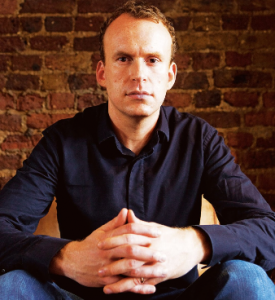Don’t get me wrong, I read a lot of books that would be considered literary fiction. And I often enjoy these books. I have nothing against serious books, or intelligent books, or realistic books, or books about educated middle class people cracking up. (I’ve written one or two of them myself.)
No.
What I am against is the idea of literary fiction. The idea that it is – or should be – a category. A genre, something separate to, say, books about werewolves or books set in space or books revolving around love stories. And as the publishing world becomes ever more paranoid about its future there seems to be a renewed attempt to turn it into a genre of its own. This is wrong. This is dangerously wrong.
I’ll tell you why:
– Books should not be gated communities. Culture is always at its richest when it is mixed up. Genres never help this.
– Literary fiction is synonymous with serious fiction. By turning serious fiction into a genre you are automatically devaluing every other type of book.
– Genres are straitjackets. Genres say this is what you can and can’t write about. A genre imprisons imagination.
– If Hamlet was a debut novel, written today, a literary publisher would sit down with Shakespeare and say ‘there’s some really great stuff in here William, but to be taken seriously you should probably get rid of the jokes, and all the murder stuff, and the ghost. Literary readers don’t like the supernatural.’
– Genres make for worse writing. I once wrote a novel that I wanted to be taken seriously by all the right literary gatekeepers. The novel was called The Possession of Mr Cave. It obeyed most of the rules for literary fiction. It got good reviews in the TLS and the New York Times and the Guardian. I hate myself for writing that novel. You see, people always talk about writers selling out but I bet just as many are being a different kind of fake. The kind of fake that wants good reviews, and credibility, and a gold star from teacher.
-Genres create rules. And the only rule a writer should follow is truth. The truth of their own instincts and imagination.
– It is outdated. We do not live in a bubble. Our minds aren’t VIP rooms that only allow Virginia Woolf and DH Lawrence passed the velvet rope. They are are filled continuously nowadays with a riotous carnival of influences whether we like it or not. TV shows, pop songs, graphic novels, movies, blogs, tweets, pop-up advertising, Youtube videos, Tumblr quotations, the news, our Facebook friends, the postman, our dreams and nightmares.
– It is about snobbery. It is about that worst aspect of human nature, the one that says ‘I read this type of book because I am this type of person which is a better type of person than the type who reads fantasy books/thrillers/romances/whatever’. It is book fascism.
– It goes against creativity. I don’t know how other writers work but I feel at my most creative when I am busting convention. In The Humans I write about intellectuals at Cambridge University. I also write about dysfunctional middle class family relationships. So far so Franzen. But I also write about an alien, and immortal beings. And I tell jokes. I can honestly tell you I have never felt so energised or passionate writing anything and I honestly think that energy came from allowing myself to be free. About forgetting about being a ‘literary’ writer or a ‘commercial’ writer or a ‘fantasy’ writer.
– People who put fences up between things damage culture. People who say there are certain types of films/plays/ballets/paintings/books for certain types of people put people off those things. And the last thing anyone needs to do is to put people off books right now.
– Art and stories should be inclusive. You know, like Shakespeare – playing to the groundlings and royalty. We tell stories around campfires. We shouldn’t leave people in the cold.

